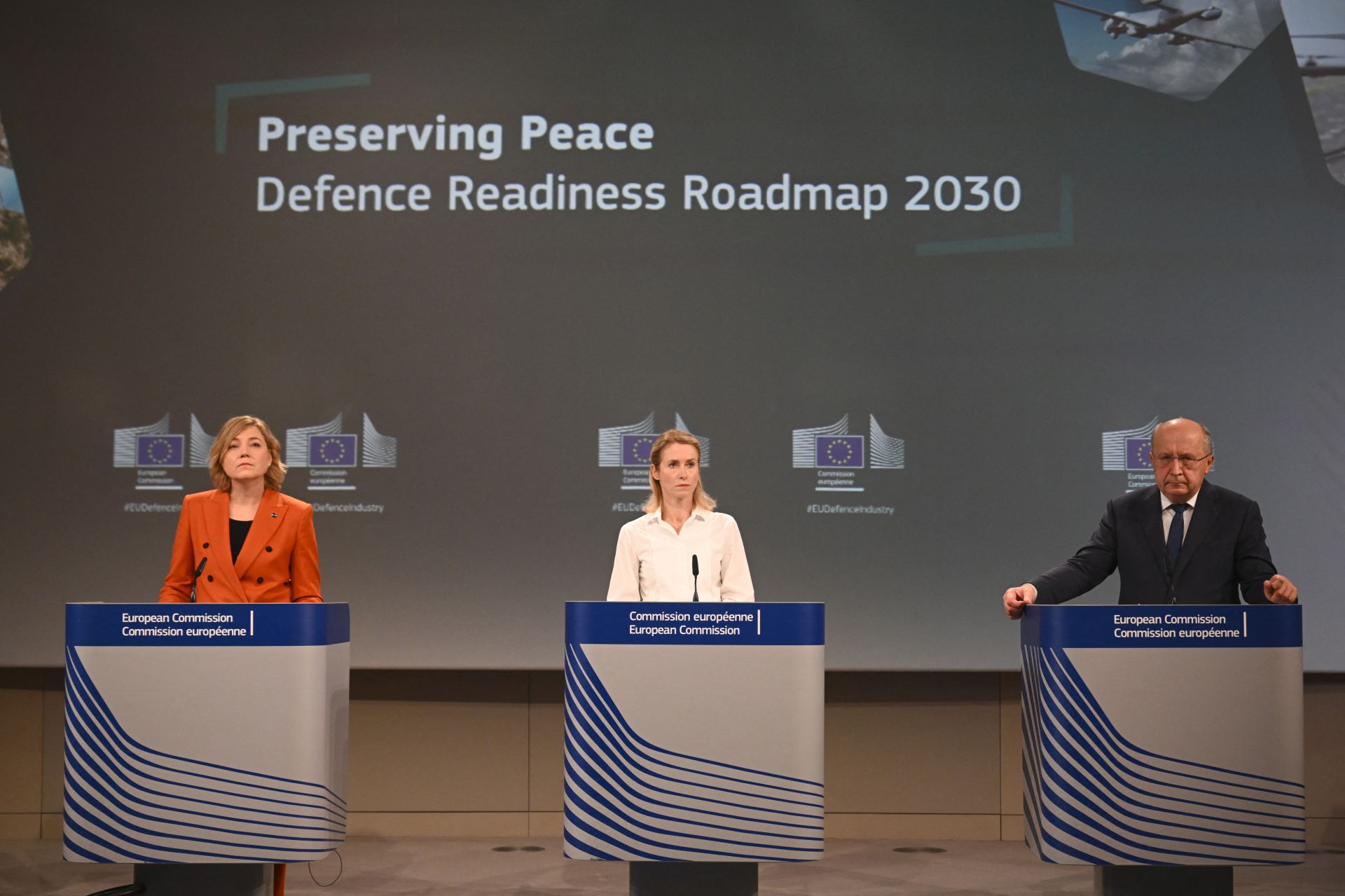- Home
- Middle East
- EU Says Drone Defenses Not 'Optional' in Push to Face Russia

EU Executive Vice-President for Tech Sovereignty, Security and Democracy Henna Virkkunen, EU High Representative and Vice-President for Foreign Affairs and Security Policy Kaja Kallas, and EU Commissioner for Defence and Space Andrius Kubilius hold a press conference on the Defense Readiness roadmap at the EU headquarters in Brussels on October 16, 2025. ©NICOLAS TUCAT / AFP
The EU had no choice but to build up anti-drone defenses against Russia, the bloc's foreign policy chief Kaja Kallas said Thursday, as Brussels unveiled a "roadmap" to prepare for potential conflict by 2030.
The initiative is one of several flagship projects in the EU's "readiness roadmap" aimed at preparing the bloc for a possible attack from Moscow in the coming years.
"Drones are already redefining warfare. Having drone defenses is no longer optional for anyone," Kallas told journalists.
"Today we propose a new anti-drone system to be fully operational by the end of 2027," she said.
EU chief Ursula von der Leyen first called to create a "drone wall" to counter Moscow last month, hours after NATO jets shot down Russian unmanned aircraft in Poland.
The initial focus of the proposal was on bolstering the EU's eastern border states, but it has since been broadened after mysterious drones rattled a string of countries further west.
Under the new plan Brussels wants the project -- now called the "European Drone Defense Initiative" -- to begin working initially by the end of 2026, and to be fully functioning by the end of 2027.
Brussels hopes to get the backing of EU leaders for the plan -- the latest volley in its push to ramp up its defenses -- at a summit next week.
"Russia has no capacity to launch an attack on the European Union today, but it could prepare itself in the years to come," Kallas said.
"Danger will not disappear, even if the war in Ukraine will end."
Alongside the drone initiative is a broader "Eastern Flank Watch" program designed to bolster air and ground defenses along the EU's border closest to Russia by end 2028.
The EU is seeking to tap Ukraine's war-tested expertise to incorporate low-cost capabilities to tackle drones.
There has been some skepticism from countries such as Germany over the project -- and fears that the EU could end up treading on the toes of the NATO military alliance.
'Russia intensifying hybrid war'
So far the EU has not given a concrete estimate for how much it thinks the flagship projects will cost.
There is also so far no announcement on potential new financing -- despite calls from EU countries close to Russia for the bloc to help spread the burden of new investments.
"We need fast, additional financial instruments, grant-based and without punishing the states that are on the border," Lithuania's defense minister Dovile Sakaliene told AFP.
"It's our joint responsibility to protect the Eastern flank border -- all of us."
Sakaliene said that given Moscow was "clearly intensifying its hybrid war" against Europe, the 2027 goal for the anti-drone system was not soon enough.
"I'd like to have it sooner, because what we see is a rapidly rising concentration of incidents," she said.
By Max DELANY/AFP
Read more



Comments